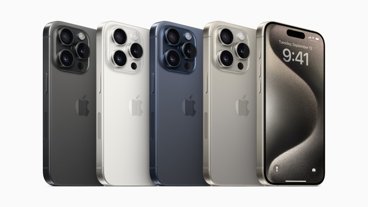T-Mobile U.S. ad inadvertently boosts sales of iPhone app
A new advertisement featuring alumni of Saturday Night Live playing around with the Android-powered myTouch 3G, shows comedian Dana Carvey using an application that simulates steam on glass. The user can "wipe" the steam off the screen, as Carvey does to write "Call me" and draw a smiley face. But an iPhone application that predates the Android offering has turned out to be a beneficiary, despite the fact that it is not a part of the TV spot.
According to TechCrunch Israeli iPhone developers ApParty were surprised when their year-old, App Store-exclusive offering iFog saw its sales double out of the blue a few weeks ago. At first they were unsure why the sales had spiked, until someone noted the new T-Mobile advertisement.
The iPhone application was first released in December 2008 and found quick popularity, selling 200,000 copies. Sales, however, flattened over time, to about 250 per week. Then, two weeks ago, U.S. sales began to nearly quadruple.
The similar Android application featured in the T-Mobile commercial, Steamy Window Pro, is not made by ApParty. But clearly the advertisement inspired iPhone and iPod touch users to search the App Store for a similar program. As a result, the $0.99 iFog app inadvertently reaped the benefits.
Apple has frequently said in its own advertisements that there is an app for "just about everything" on its iPhone App Store. That claim came into question in the U.K. this summer, when the Advertising Standards Authority received a number of complaints that the "there's an app for that" ads said such variety was available "only on the iPhone."
In its decision, the ASA backed Apple, noting that while Android has its share of applications, the App Store is the only location where consumers can access such a variety of options.
"We therefore considered viewers would understand the claim 'Only on the iPhone' to refer to the range of apps available and the user experience of the App Store and iPhone, and not that they were the only company to provide applications for mobile phones," the ruling stated. "Because Apple had shown there were far more applications available for the iPhone than the G1 phone, and user-experience of the iPhone and the app store was distinct from its competitor, we concluded the claim "Only on the iPhone" was justified and not misleading."
 Katie Marsal
Katie Marsal










 Malcolm Owen
Malcolm Owen
 Chip Loder
Chip Loder

 William Gallagher
William Gallagher
 Christine McKee
Christine McKee
 Michael Stroup
Michael Stroup
 William Gallagher and Mike Wuerthele
William Gallagher and Mike Wuerthele







